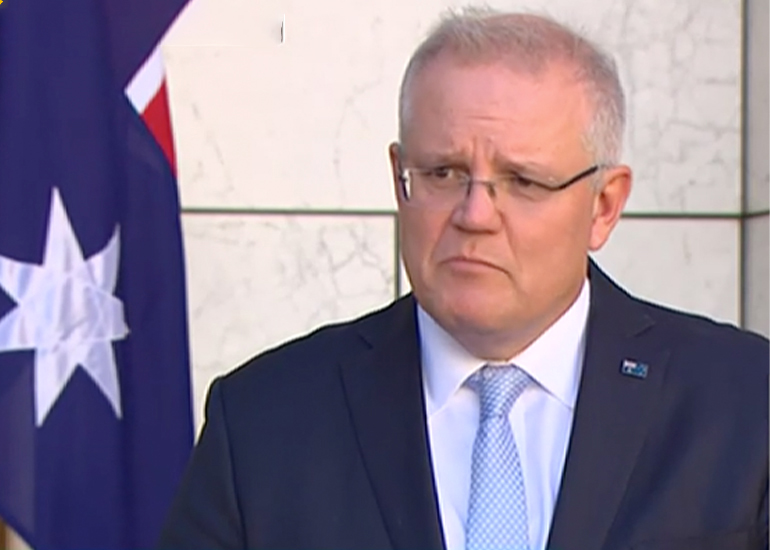- The Morrison government and Big Four banks have committed $100 million each to the fund
- It will invest in around 30-50 high growth SMEs annually in return for a 10-40% equity stake
- The Business Growth Fund will have an independent management team selecting investments
- The fund will grow to $1 billion.
The nation’s biggest banks have signed on the dotted line with the federal government to launch the $540 million Australian Business Growth Fund (BGF) to fund high-growth small-to-medium enterprises (SMEs).
ANZ, CBA, NAB and Westpac have each tipped in $100 million each along the $100m from the federal government, with HSBC and Macquarie Bank also contributing $20 million each.
Prime Minister Scott Morrison originally announced the fund in April 2019 as part of a pledge to help create 250,000 new small businesses over the next five years, then put flesh on the bones with commitments from the Big Four banks in November last year.
Today the six banks involved signed a Shareholders Agreement with the government. The BGF is chair by former Tasmanian premier Will Hodgman with Anthony Healy appointed CEO. The fund will operate commercially and make investment decisions independently of Government.
Established Australian businesses annual revenue between $2 million and $100 million are eligible to apply for long-term equity capital investments between $5 million and $15 million. The catch is they need to demonstrate three years of revenue growth and profitability. The BGF’s assessment of an SMEs track record will take into account uncharacteristic trends resulting from the COVID downturn.
Morrison said he expects the fund will shortly begin engaging with SMEs seeking equity investment.
BGF investment will constitute a minority economic interest of typically between 10-40% of total, fully-diluted, share capital (on an ‘as-converted’ basis).
Each investment must be commercially viable and make a return appropriate to the underlying risk, with an expectation that there must be an industry and regional spread of investments.
Australian Small Business and Family Enterprise Ombudsman Kate Carnell said the formal establishment was excellent news.
“Today’s launch of the Australian Business Growth Fund is fantastic news for high growth potential SMEs who require essential long-term equity finance to flourish,” she said.
“The fund will fill the critical gap, identified in our Affordable Capital for SME Growth report, for patient capital to enable our up-and-coming SMEs to succeed.
“Minority shareholding of between 10% and 40% will enable these promising businesses to retain control of their company, while providing the funds they need to invest in growth.
“Similar models in the UK and Canada are tried and tested – overcoming barriers to accessing affordable capital for businesses that have gone on to demonstrate successful growth.”




















Trending
Daily startup news and insights, delivered to your inbox.